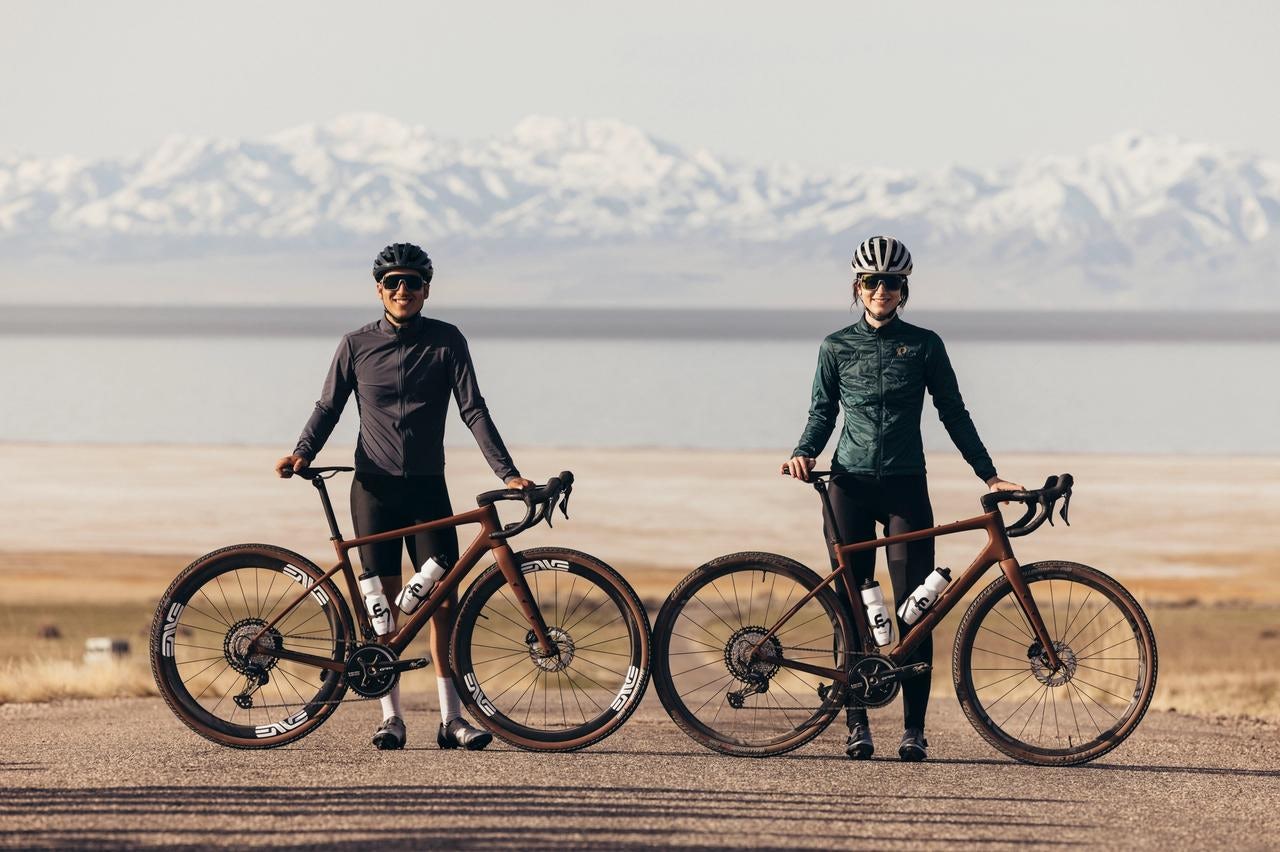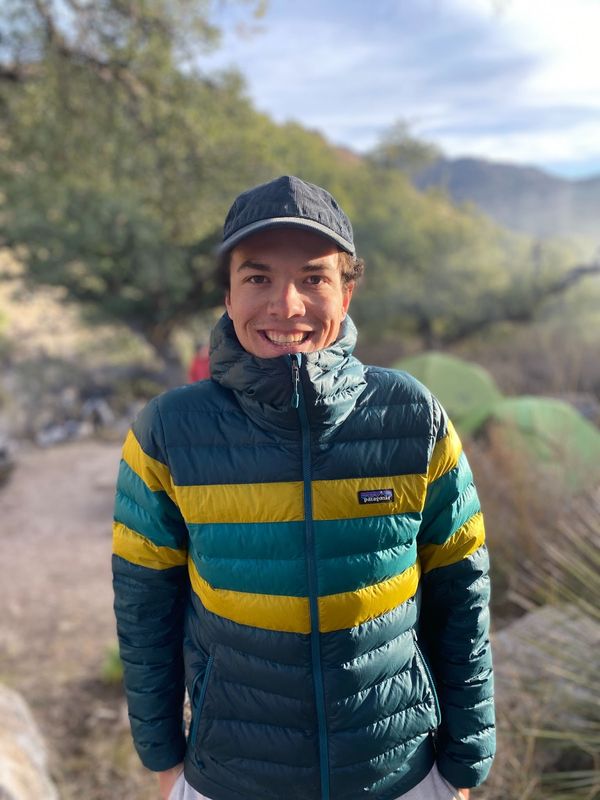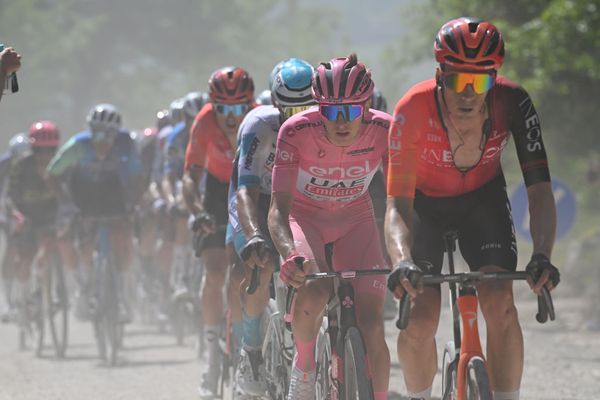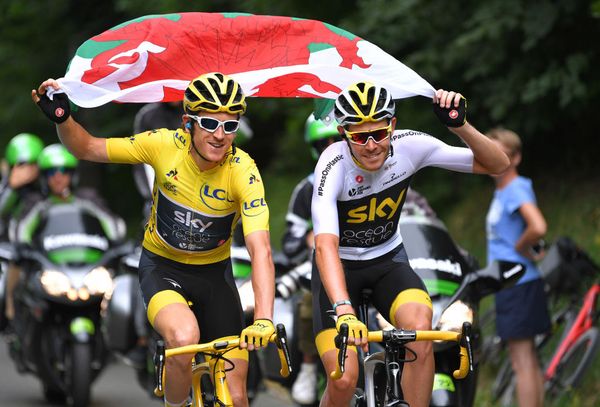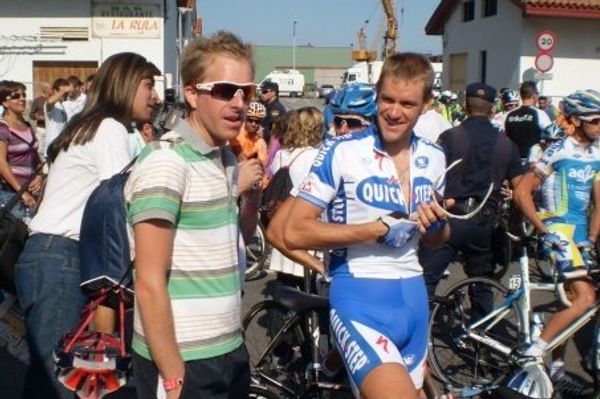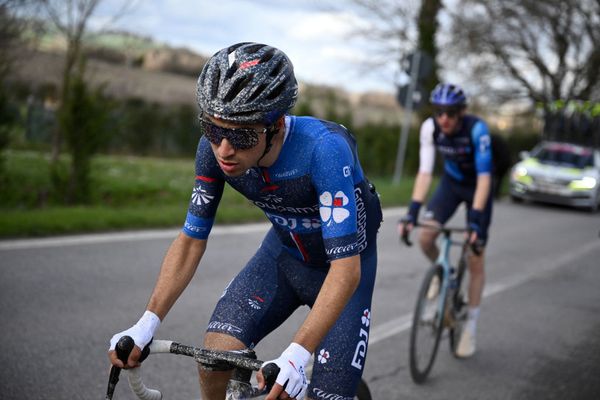Introducing ‘Phase 2’: a new take on cycling development
Alexey Vermeulen has launched a new development program for young riders focusing on gravel cycling. We spoke to him to find out more
Logan Jones-Wilkins
Junior Writer - North America
© Avery Stumm
Neruda Diaz (left) and Julia Garris (right) are the two athletes selected for the first year of the Phase 2 program
Gravel, for most of its short history, has been something of a retirement home for former road and mountain bike racers, with brands and athletes hoping to use their public platforms to carve out a niche in the new grassroots scene of gravel.
As the sport has grown the demands have changed and one question continues to be asked: How can gravel create its own developemetn system?
Alexey Vermeulen, one of the top American gravel racers, has what he thinks is the right answer to that question. Gravel, in his opinion, is ready for its second phase.
“At the end of last year, I was talking to Neil [Neil Shirley is the director of marketing at ENVE] about what we wanted to do in 2024, myself in collaboration with ENVE as a brand,” Vermeulen told GCN.
“After that, I had a conversation with a high schooler who was graduating and had raced NICA the whole year. Their question was ‘Should I race cyclocross or mountain bikes?’ And I said, ‘Neither, maybe?’
“That opened up a conversation in my head about the pathway I took and there's been growth in cycling in that 14-18 age range, but there is quite a fall-off in mountain biking and gravel racing after it. If we want to position ourselves as the top country in gravel, we need to work to take someone from their entry into the sport all the way to their chance to make a living in it. Right now, I think there is a huge gap.”
Read more:
- Gravel bikes, riding, racing and events: Everything you need to know about the sport in 2024
- The complete 2024 USA gravel race calendar
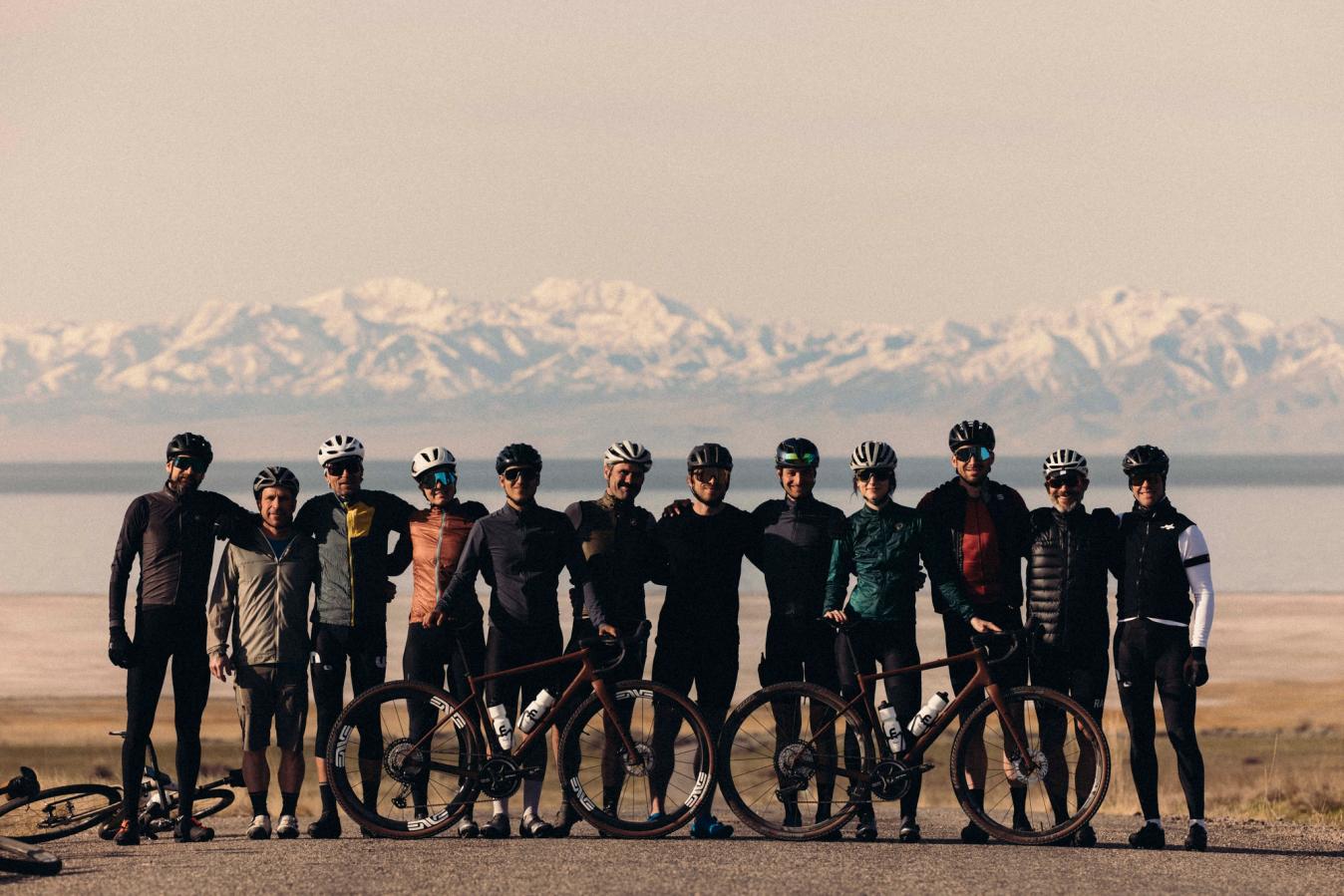
© Avery Stumm
The full team supporting the 'Phase 2' project pictured at the pre-season get together in Utah
What is Phase 2?
That small conversation in Vermuelen’s head developed into a fully-fledged plan, which has come to fruition with the “Phase 2” project Vermuelen launched in collaboration with ENVE and Shimano. Phase 2 provides season-long support for two young gravel racers, one man and one woman, to work with Vermuelen to build their skills as developing gravel racers.
“My thought and goal is that there is a way to make this sustainable and financially stable that doesn't include asking someone for a hundred grand to get it off the ground.”
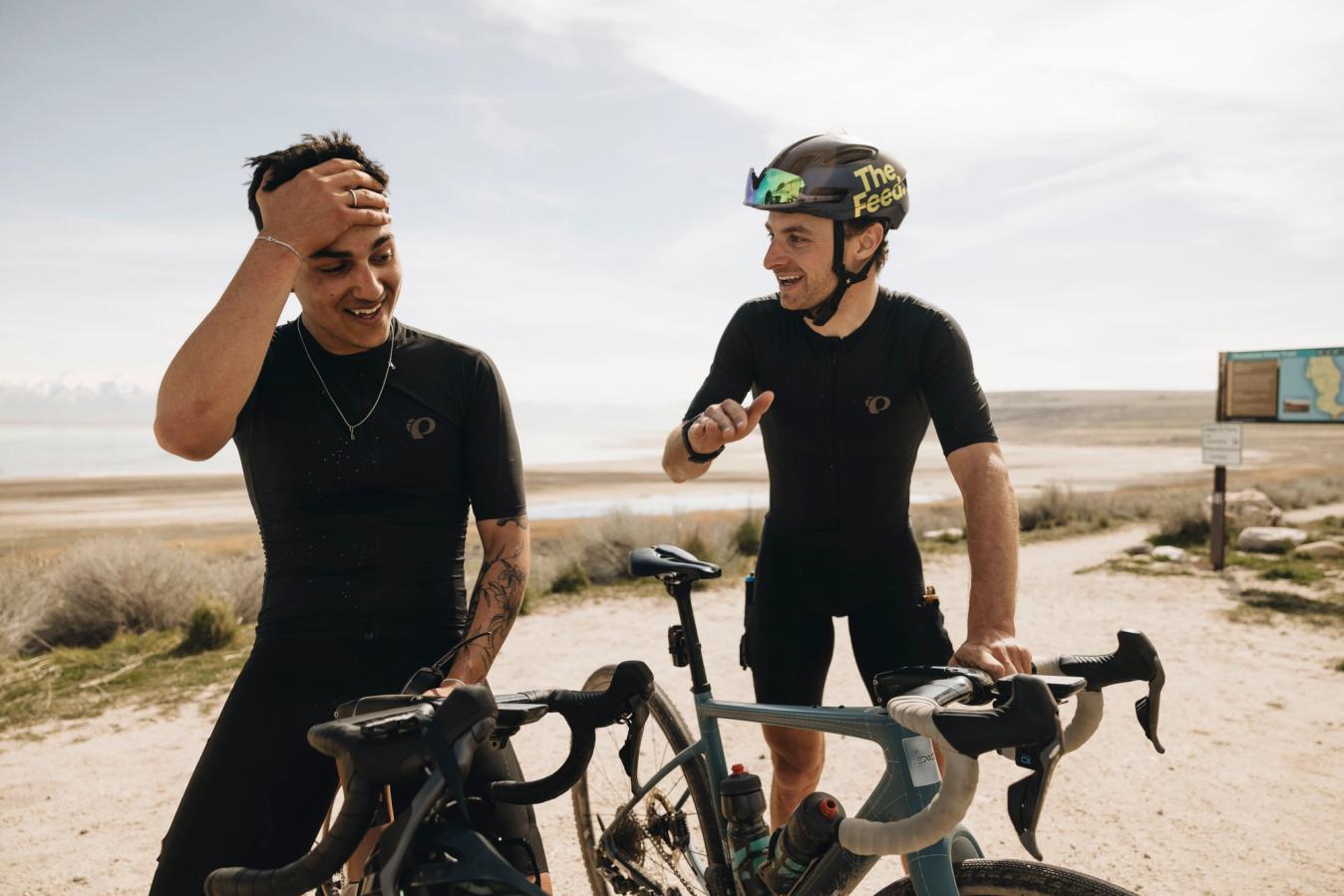
© Avery Stumm
Alexey Vermeulen and Neruda Diaz, one of the Phase 2 athletes, cracking jokes during a ride
A lot has changed in American cycling in the decade since Vermuelen began his journey from enthusiastic young racer to professional cyclist, which ended with him receiving a professional contract from LottoNL-Jumbo in 2016.
“The biggest difference was there was support up until a point where you knew you ‘made it’ or you didn't,” Vermeulen said of his development in cycling. “When I was a junior there was no NICA program, I was training alone in Michigan, but then I knew at 18 I could apply to school and I could hopefully be talking to strong under-23 teams – at the time Livestrong and BMC – and make a decision based upon what's on the table.
“Now there is no decision, especially in gravel. You either need to go to college, where there really is no supported gravel racing, or you take a risk and ride your bike full-time. But those opportunities are few and far between, you’ve got to prove yourself before you get paid.”
That is the gap that has coloured the sport of gravel through its early stages of development. Unlike road racing in the United States, where you have relatively high levels of support for young riders compared to the domestic professional peloton, gravel has very little support for the lower rungs and relatively high-level support for the top of the pyramid. For example, according to people within the sport, both men and women gravel professionals have over six-figure salaries.
That tendency to pay riders for past performance rather than their potential poses a problem for the gravel discipline, especially as the professional side of the sport grows. Vermeulen, with his experience across disciplines and from his position as one of the top riders in gravel, is hoping to address those challenges with Phase 2.
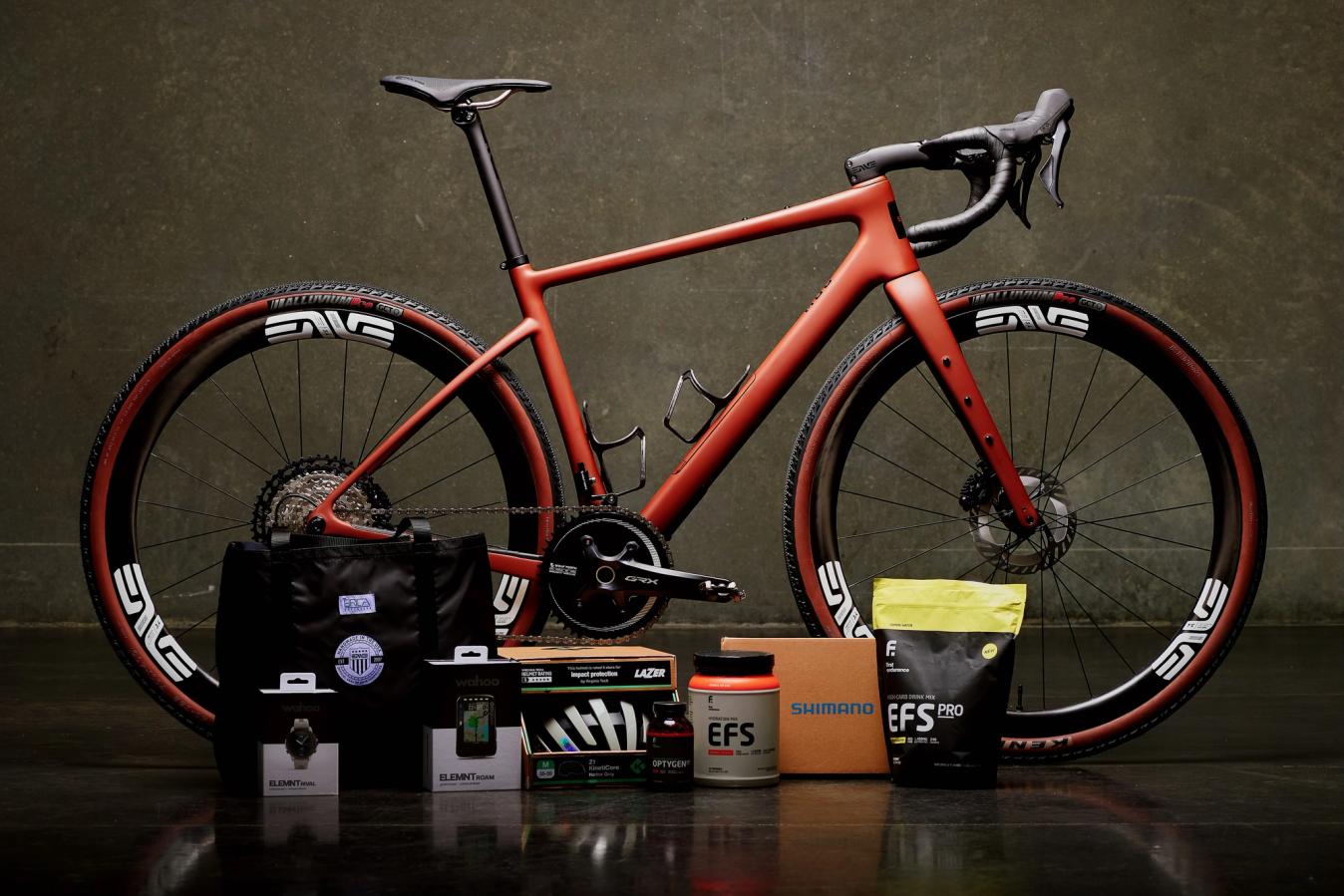
© ENVE Composites
The collection of sponsored good that the two riders will be using for the 2024 season
“Phase 2 is an education for young athletes, but also for companies,” Vermeulen said. “I have had conversations with ENVE and Shimano about how they look at athletes. Right now, who they want to look at is who is in the Grand Prix. But the reality is they need to look at people leaving high school who have never ridden any of the events in the Grand Prix. That change in viewpoint, I hope, is what creates that bigger pathway.”
“If all of the athletes who have established themselves and will do this for the next five years are able to convince their companies to carry two development riders, you create a development pathway. At the end of the day, we hope the people who we chose for Phase 2 this year understand enough at the end of this process to have contract options from other companies.
“We hope that at the end of the year, we want to hire them as ENVE athletes, but if Canyon or Specialized want to hire them, we've created a spectacular human and a great bike rider who can take the next step.”
Read more: Alexey Vermeulen's ENVE MOG
A ‘Baby Grand Prix’ sits at the heart of the project
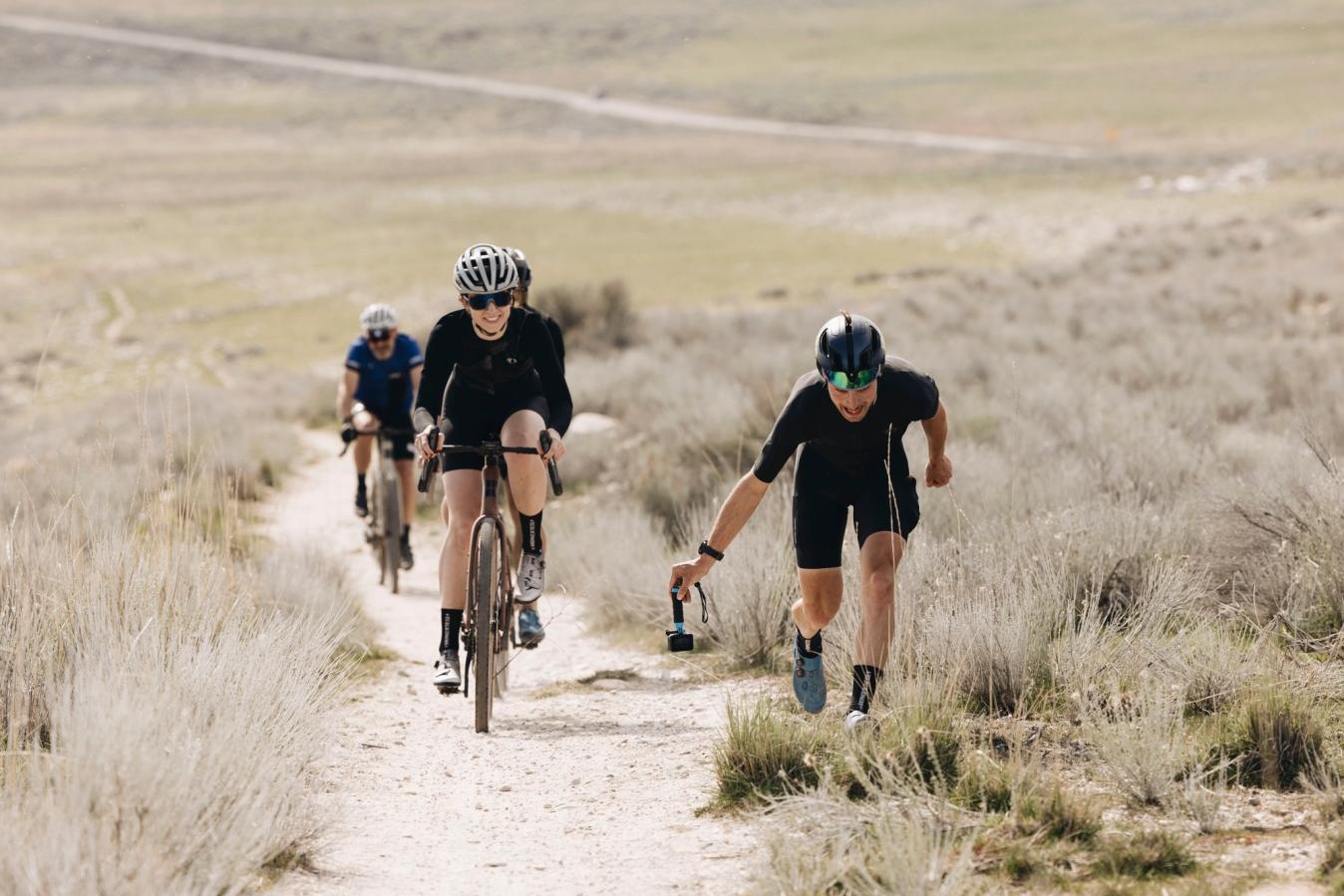
© Avery Stumm
Capturing content is part of the project as Vermeulen hopes to create athletes who can master the many skills of an American gravel privateer
Over the next season, the two riders will take on a calendar that revolves around three of the Life Time Grand Prix events – Unbound Gravel, Crusher in the Tushar and Big Sugar.
Instead of three professional races, however, the two racers will take on the 100-mile race at Unbound and the 50-mile distance at Big Sugar where they will be among the top competitors as the professionals take on the 200-mile and 100-mile races, respectively.
"One thing that we heard a lot in the application was, ‘This is super cool, but I want to do the Unbound 200.’ From my experience, my advice is always ‘Go win the 100 and then step up.’ That's more valuable to an ENVE than to see you get pummelled by somebody.”
Nevertheless, at the high altitude Crusher in the Tushar in July it is into the deep end with both of the racers slated to line up against the full professional Life Time Grand Prix field. Between the three races, Vermeulen has tried to find a full smorgasbord of the events that the riders would expect to face in the years to come as fully-fledged professionals.
“The goal was riders ages 18-23, maybe in future years we open that up, but the idea was to get someone coming out of high school, someone who hasn't done Unbound 200, someone who was able to be modelled and educated,” Vermuelen said.
“This was based around finding someone who was already ‘ripping’, someone who trained six or seven days a week – someone who wants to be there who just hasn't connected everything.
“We also wanted people who have the ability to be on camera and talk to people, like we are talking now. This is partially a media project so it is a vital component. That's why we had a video component to the application.”
Read more: Top 10 must-do US gravel races in 2024
Introducing gravel’s next-gen
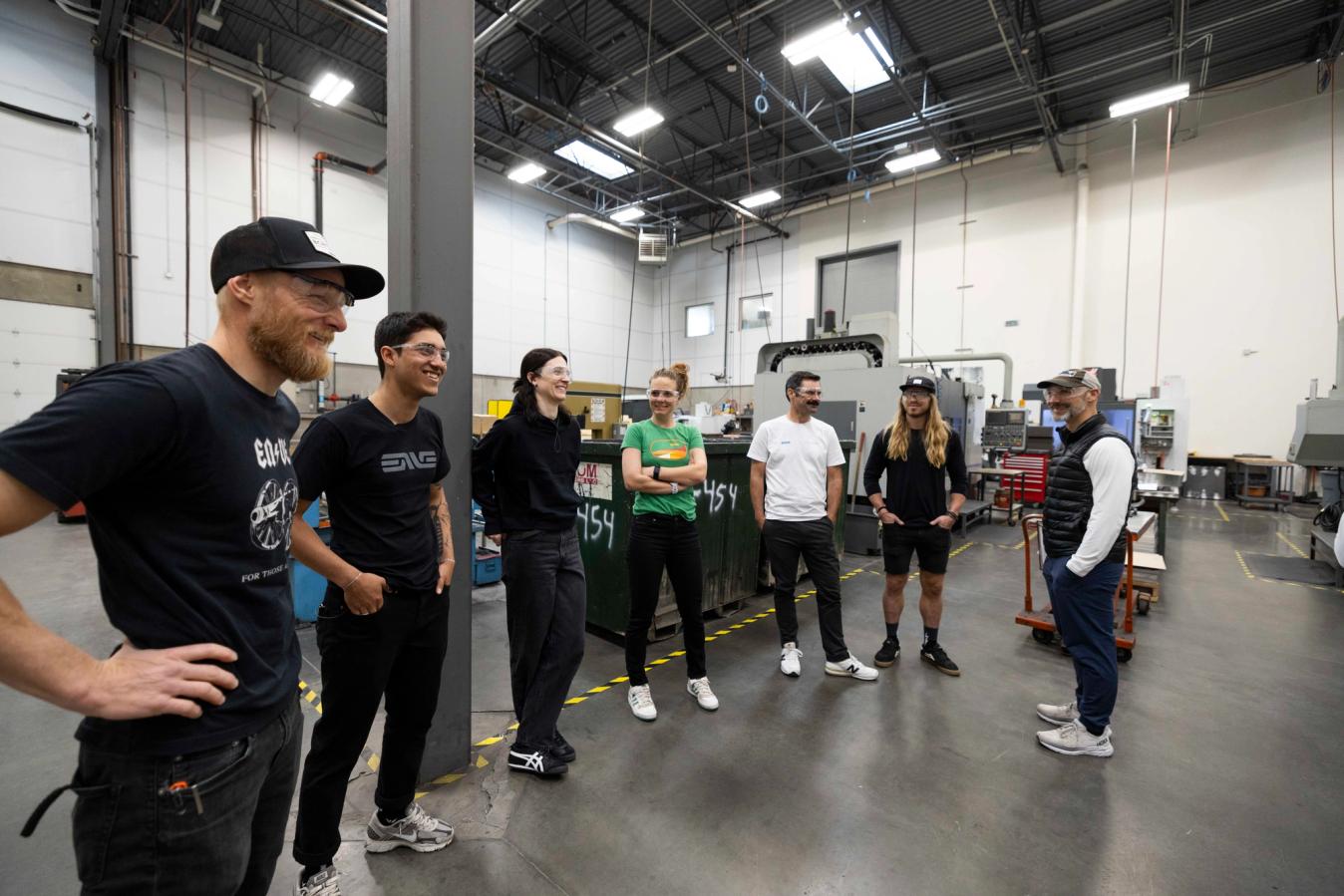
© Avery Strum
Part of the launch for the project was a tour of ENVE's headquarters in Ogden, Utah
Earlier in the week, Vermuelen announced the two riders who would be taking on the first year of the new development program. On the women’s side, Phase 2 has selected Julia Garris from Vermuelen’s old home state of Michigan. For the men, Neruda Diaz from Boulder, Colorado was selected. Both riders are under 20 years-old.
“Neruda comes from a mountain bike background, he's great downhill, but he doesn't own a gravel bike. He is so excited to be around all the guys we talk about – Keegan Swenson, Russell Finsterwald – he wants to be there,” Vermuelen said.
“Julia is new to the sport, her brother has been racing for a while and she always hated cycling, but the last two years she got into it and just rips. She did this race in Michigan and did this race called the Meran 166 which is a 166 shitty sandy race and she did it in sub-10 hours and I was like ‘Oh shit, you enjoy riding your bike! Let's see how you handle a pack and being around everyone else’.”
“They’re both going to have different challenges, Neruda is going to be great with the skills but he's going to have to learn how to climb fast. I think Julia is going to battle with race craft and pack skill, the tough things for riders who have not been riding a bike for long. Also, we know that in cycling their is less development for women’s cycling so we are going to bring in other female athletes to educate her on those specifics.”
While the Phase 2 project is undeniably a huge opportunity for both riders, who will be getting top-of-the-line instruction and equipment from Vermuelen and most of his major sponsors, it’s also an opportunity for Vermuelen to find the strengths and weaknesses in the younger riders and nurture them to success.
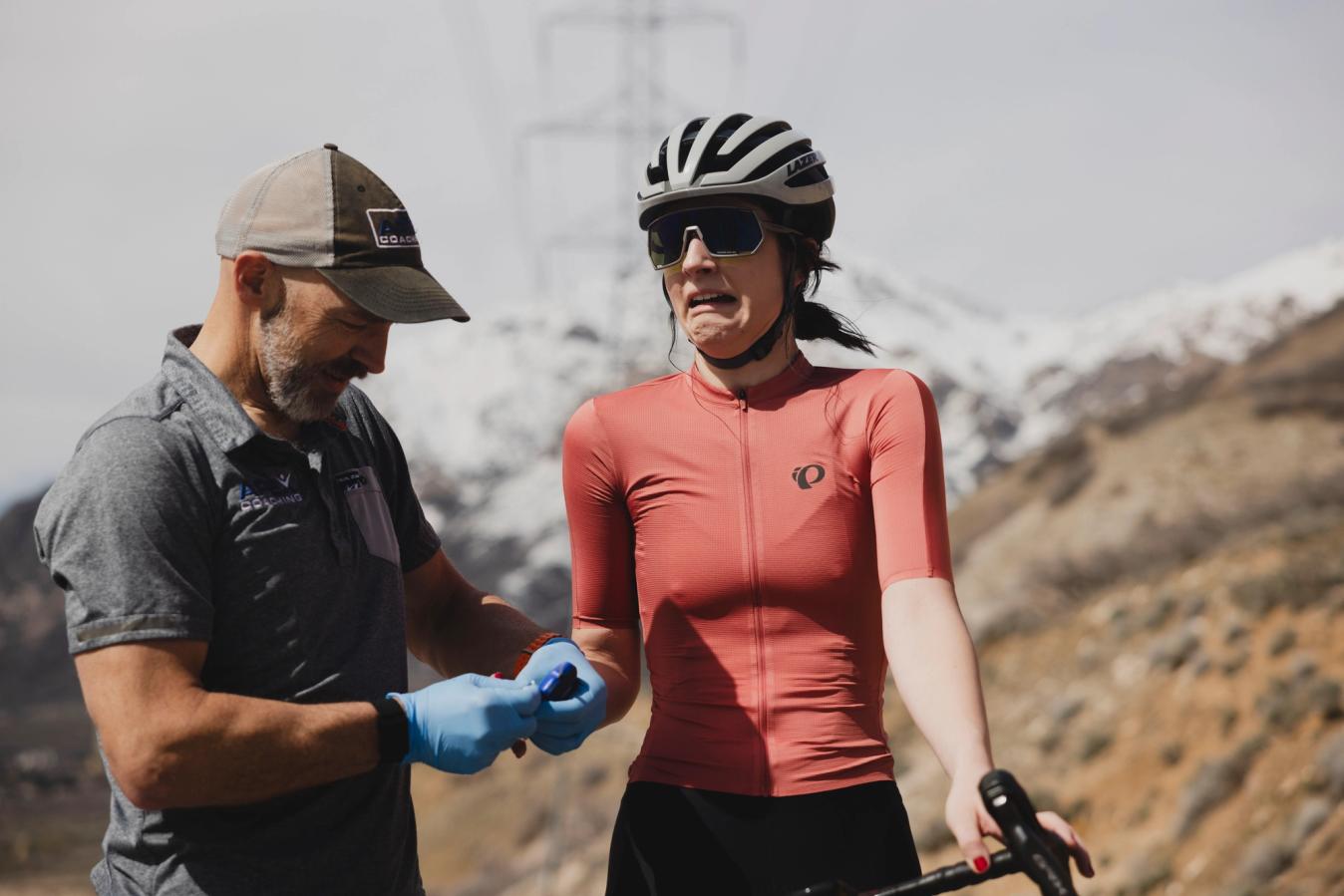
© Avery Stumm
Julia Garris feels the pain of the process as she undergoes a lactate test at the pre-season Phase 2 camp in Utah
Most of all, it will be about building a successful unit that can be the model of development pathways in the years to come.
“Success has three different levels. Results-wise, if they are racing for the win at the Big Sugar 50 at the end of the year I am happy. Personally, what I hope is that I can, with a full heart, recommend these people to companies that I know are looking for athletes.
“Lastly, success is how the media project goes and if peers take on other riders. If we can create a development pathway, maybe even a baby Life Time Grand Prix, that’s a success.”
For more interviews from the racing world, visit our racing interviews library.
